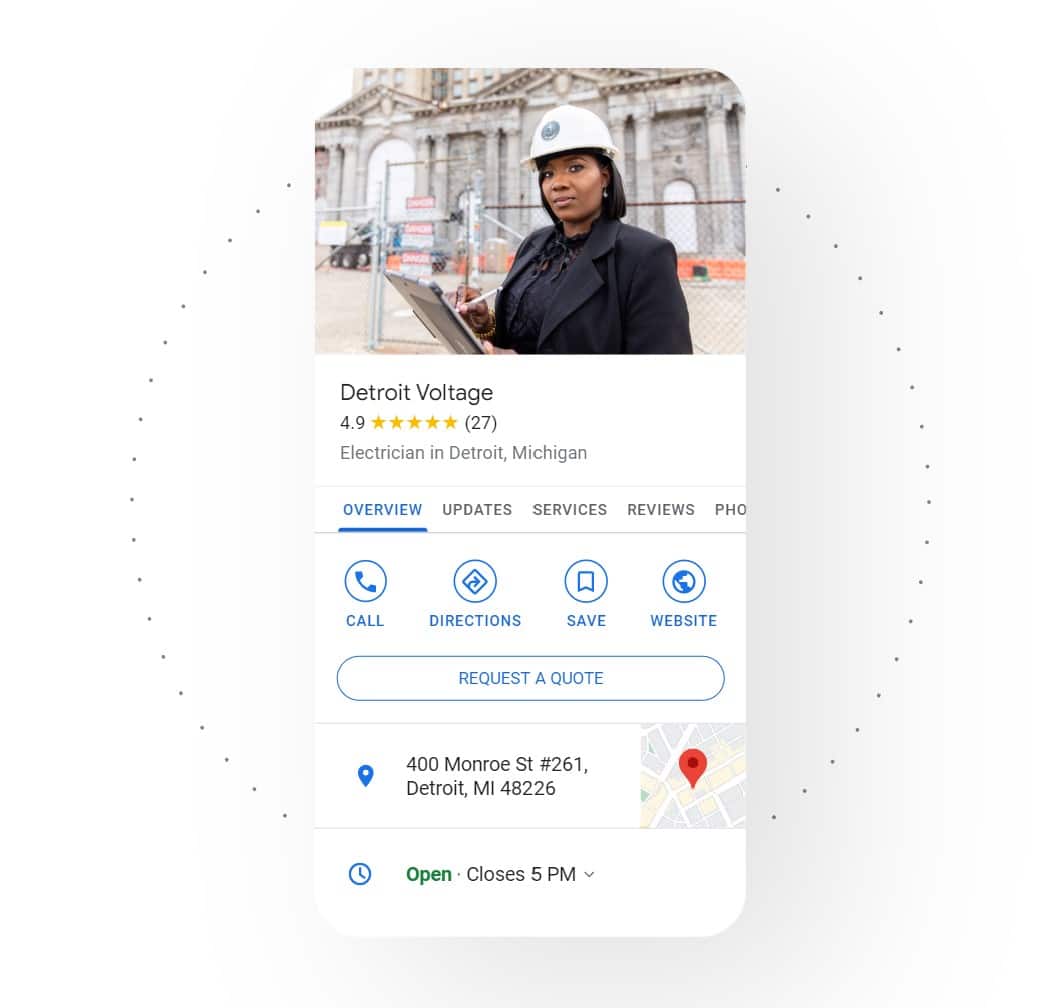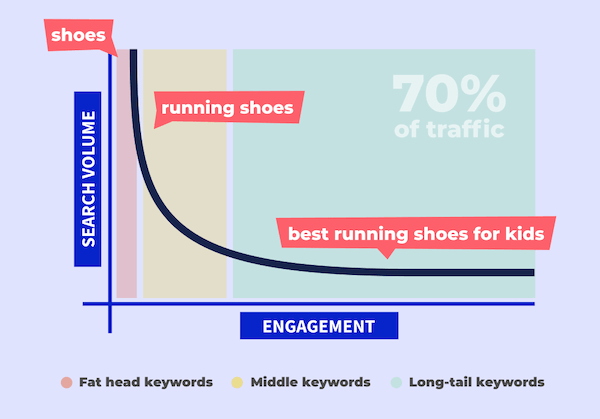
Did you know that 50% of Americans use voice search every day?
With digital assistants and smart speakers, those looking for products, services, and solutions need only ask a question. That’s why voice search optimization should be part of your SEO strategy.
In this blog, our Senior Digital Marketing Strategist, Monique De Leon will walk you through what voice search SEO is and provide you with 7 actionable strategies to try.
What You’ll Learn:
- What is Voice Search?
- How Are People Using Voice Search in 2024?
- Voice Search Optimization: Important Ranking Signals
- How to Do Voice Search Optimization in 7 Steps
- FAQs: Voice Search SEO
Our Expert Insights on Voice Search Optimization
“Voice search isn’t a new trend, but it’s grown in popularity over the last few years. For most people, asking a question is more convenient than typing it out.
Voice search is forcing companies to rethink their traditional SEO strategies. One of the most critical things to remember is to ensure that the content uses natural language, focusing on question phrases with a good volume, and using foundational SEO best practices for your website. When you do all these things and consider the intent of voice searchers, you can gain rankings that lead to engagement and conversions.”

Monique De Leon – Expert Quote on Voice Search SEO
What is Voice Search?
Voice search is using a digital assistant to ask queries to a search engine. It works via the automatic speech recognition system (ASR) that translates voice signals into text. It’s searching by voice rather than text.
Several platforms allow for voice search, the most common being Google Assistant, Apple’s Siri, Microsoft’s Cortana, and Amazon’s Alexa. A report from NPR and Edison Research revealed that 62% of Americans aged 18 and older use a voice assistant. Of those, Statista reports that Alex wins the smart speaker market, and Siri is the favorite for mobile.
The growing rate of usage means voice search SEO is increasingly critical for businesses.
Focusing on optimization for this can increase website traffic, build trust with audiences because you’re providing useful answers, and enhance the user experience.
The value of voice search and SEO applies to any organization. Looking at current trends around how people use it will be essential in how you strategize voice search optimization.
How Are People Using Voice Search in 2024?
Voice Search and “Near Me” Posts
Voice search also coincides with “near me” searches. Voice search users are more likely to ask questions about local businesses, often including the near-me descriptor.

How People Use Voice Search via Upcity
To capitalize on this, you’ll want to use many of the same strategies for “near me” searches, including:
- Creating and optimizing your Google Business profile
- Encouraging more reviews from customers as they impact your rankings
- Ensuring your site is fast and mobile-friendly
Additionally, you want to understand the most searched questions about your industry, product, or service. Then, create content that ties this in along with any “near me” attributes.
Query Length is Getting Longer
A voice search query is different from a text one. It’s much more conversational. Typing in a query is by phrase with no attention to grammar. Voice searching almost always involves asking a question and is much longer.
Here’s a quick example of text vs. questions.
Text Query: “Best tacos in Austin”
Voice Query: “Where can I find the best tacos in Austin?”
Most text-based searches are this length or shorter. Voice searching is a proper sentence.
Because of the shift, search engines rely less on keywords and more on Natural Language Processing (NLP) to inform search results. NLP is artificial intelligence (AI) that helps computers understand and interpret human language.
In consideration of these differences, you’ll need a new approach to keyword research. SEO tools now have a “questions” tab when doing research. These results will advise you on what questions to focus on in optimization.
Search Intent Continues to Grow Increasingly Important
Search intent is crucial in any type of SEO. When it comes to voice search SEO, people are asking questions to solve a specific problem or need. There are several intent categories to consider:
- Informational: The intent of these searches is research. The person hasn’t made up their mind about a product and wants to gather information. An example would be, “What’s the best foundation for oily skin?”
- Navigational: Searchers want to go to a physical or virtual place. Someone may ask, “What are the directions to the closest McDonald’s?”
- Commercial: Users are looking for information on a topic or product that can be simple or complex, like, “What are the best vegetables to grow in a garden?”
- Transactional: People ask questions indicating they are ready to purchase, such as “How do I start a Hulu subscription?”
In formulating your voice search SEO plans, consider how all these intent categories align with your content. If there are gaps, you know what to add to your content calendar.
User Experience is Dependent on Instant Answers
As with any aspect of search, how users perceive the experience depends on the answers. You may rank for a question search term but see high bounce rates. That can indicate that people didn’t find your answer detailed or useful.
In most cases, voice searchers need information on the spot. Most of these happen on smartphones, so people are often actively seeking a location urgently.
Keep the need for fast answers in mind. Be sure they are concise and easy for Google and humans to understand. Much of the time, a format like FAQs works well for these.
Voice Search Optimization: Important Ranking Signals
Now that you know about how people use voice search, let’s explore how Google ranks results for voice search.
Page Speed
A fast, mobile-friendly website impacts any search rankings. Site speed can be the difference between bounces and conversions. Typically, the faster it loads, the greater the chance for conversions. A recent study from Portent revealed that pages loading in one second have a conversion rate of 40%, and it declines from there.

Study from Portent – Page Load Speed
Improve your page speed by:
- Compressing images
- Removing unnecessary code
- Using browser caching
- Limiting redirects
Security
You’ll suffer in rankings if your site isn’t secure. Per Google, HTTPS offers websites a minimal boost when it comes to positioning. Ensure all your digital properties are HTTPS.
Page and Domain Authority
Page and domain authority impact rankings. It’s a score based on algorithms that look at the quality of inbound links, organic traffic, relevance of content, and more factors. Your entire domain has a score, and each page does. It’s a 100-point scale. A score of at least 50 is considered good.
You can improve these by:
- Increasing quality backlinks
- Using internal links to optimized pages
- Freshness of content
- Quality of content
Long-Form Content
Even though voice search provides short answers to questions, they originate from long-form content. While word count isn’t a direct SEO ranking factor, it still factors in, as search engines want to deliver the most credible and relevant results. Much of that time, content that performs well has 2,000 words or more.
The reason is all about context. With more words, there are more details that a search engine can absorb to find the best answer to the spoken query.
Readability
Readability should be on your SEO radar. Simple is better in terms of word choice. Shorter sentences and paragraphs make things easier for search engines and humans to digest. Using subheaders and bullets also breaks up big walls of text.
You can use tools like the Hemingway App, Yoast, and Grammarly to provide a readability score. They also give you recommendations to improve overall readability.

Hemmingway App Offers Readability Insights
Featured Snippets
Featured snippets are highlighted excerpts of your text that will appear at the top of the search engine results in position 0. They provide users with a quick, clear answer to their search query, making them very valuable.
Improve your featured snippet opportunities by:
- Keeping content fresh
- Including questions on FAQ pages, as well as in blog posts, web copy, and beyond
- Marking up questions using H2 headers
- Answering customer questions
How to Do Voice Search Optimization in 7 Steps
Here are my top recommendations for voice search for SEO.
1. Register Your Google Business Profile
Your Google Business Profile is critical for local and voice SEO. According to Statista, 77% of consumers use Google for local businesses. All those local audiences you want to reach may use voice versus text.
Potential customers are submitting queries right now to find you. This must be on your priority list if you want to rank well for voice search on Google. Continue to improve it as you broaden products, services, and locations.

Google Business Profile
2. Have a Profile on All Review Platforms
Reviews are the social proof that your business is credible, and they impact voice search rankings. A SEMRush study concluded that companies with higher Yelp ratings and more positive reviews made it more likely they’d show up in Siri results.
3. Ensure Consistent NAP
Another way to improve voice search for SEO is standardizing your NAP (name, address, phone number). This should be the same across your website and any other digital listing. The result is that search engines have more information.
I noted that voice searchers want instant information, and many use it while driving. Your address must be accurate, otherwise, you’ll frustrate customers who can’t navigate to your location.
4. Use Long-Tail Keywords
Long-tail keywords are more specific and indicate intent. As you know, voice queries are longer, in general. They may have lower search volumes but have greater value because of their specificity.
In your research, identify the long-tail keyword questions that relate most to your business and how people search for you. Remember to keep it conversational, as well.

Example of Long Tail Keywords
5. Answer General Question Queries
Since people are comfortable talking to their digital assistants, their search actions are question-based, starting with who, what, where, when, why, and how.
Explore the popular frequently asked questions around topics you cover, and incorporate clear, complete answers to your content.
6. Identity and Answer Common Industry-Specific FAQs
What are the unique questions that customers ask about your industry? You can find these through your question keyword research as a starting point. You can find more insights internally by:
- Looking at support or service data to identify commonly asked questions
- Polling customer-facing roles on what they hear regularly
- Checking out competitor FAQs
Answering the “right” questions will deliver the most value for your company in delivering relevant leads and conversions. You could rank well for many questions that have little relevance to what your customers actually want to know.
7. Target Rich Results
According to Google, rich results, also known as rich snippets, are experiences on Google search results that go beyond the standard blue link. They can include carousels, images, or other non-text elements.
Different voice assistants use different search engines. When analyzing SERPs (search engine results pages), look at more than Google.
The example below shows a result for roasted chicken recipes. Its “richness” includes ratings and an image.

Example of Rich Results
Targeting rich snippets in voice search optimization makes your pages more visually appealing to searchers. To accomplish this, you’ll need to use Schema Markup for structured data. In voice search and SEO, Schema is valuable in structuring content and also increases the chance that your website will appear as a rich result, which is typically the source of answering voice queries.
FAQs: Voice Search SEO
1. What is voice search optimization?
Voice search optimization involves improving your website content and online presence to appear in voice search results. You are optimizing content to be the “best” answer to questions that users say when using digital assistants.
2. How do I optimize for voice search?
Like any SEO, many strategies help optimize for voice search. The most important include targeting the right long-tail keywords, creating high-quality content, using Schema Markup, targeting rich results, ensuring technical SEO is strong, and improving page and domain authority.
Voice Search and SEO for Your Brand
Any industry can benefit from voice search optimization, as your audience is likely searching this way. The use of voice searches will grow as digital assistants become more ingrained in our daily lives.
Along with voice search optimization, Ignite Visibility can help you:
- Target relevant keywords
- Set up your Google Business Profile Page
- Rank high in local SEO searches
- And more!
If this or any other search engine optimization strategy is a priority for you, my team of SEO experts can help.
Sound like a good plan? Get started by requesting a consultation.

